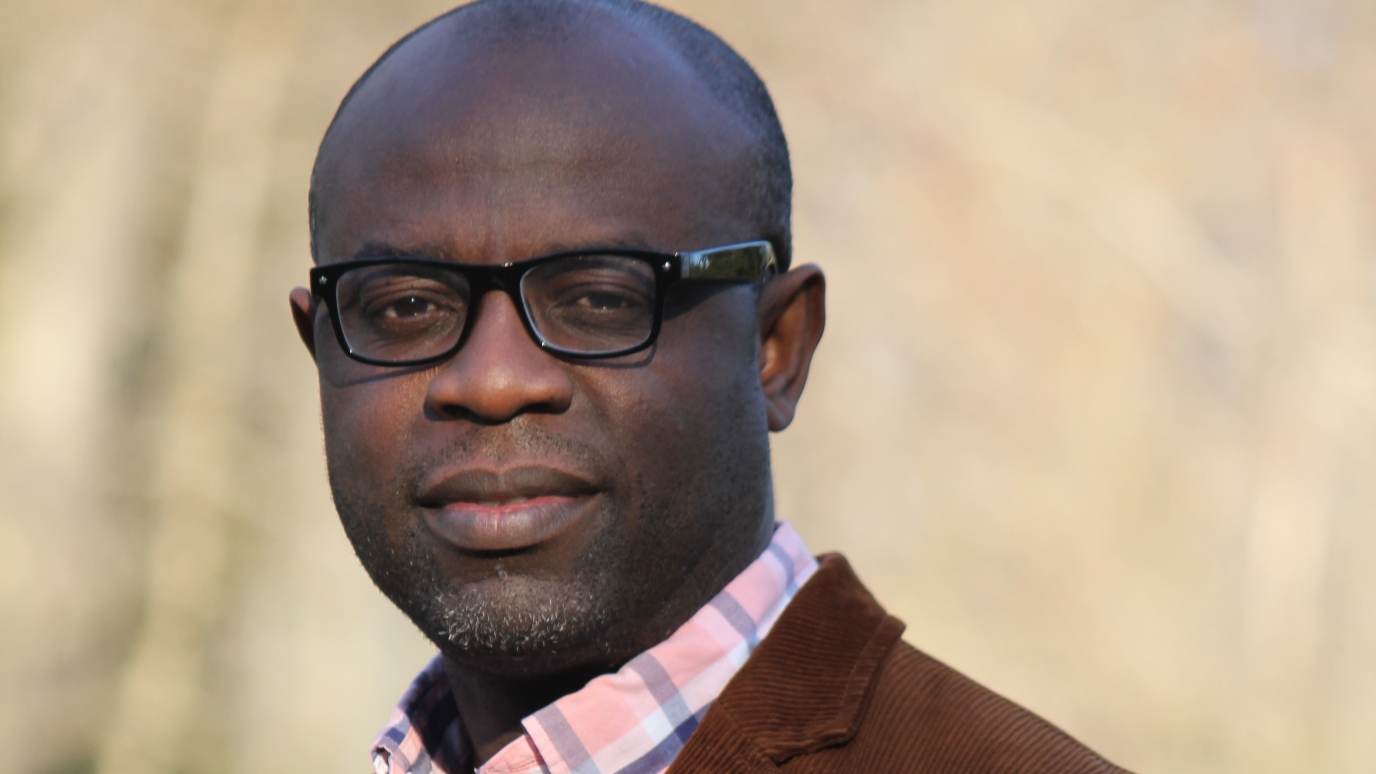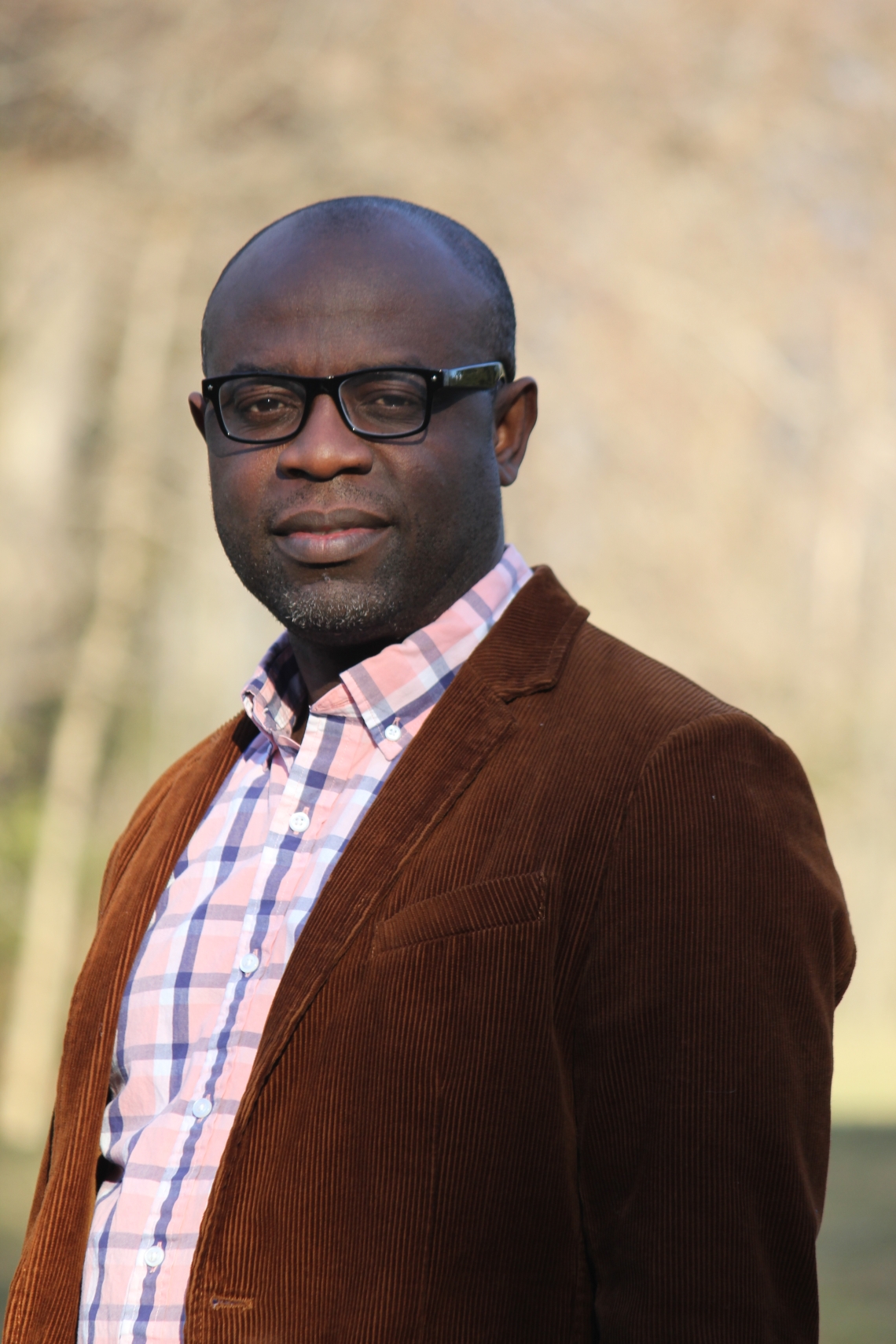
Associate Professor of Chemistry and department chair Bright Emenike earned his undergraduate degree in Nigeria. He first developed an interest in chemistry when he began working at his mother’s supermarket. “When we weren’t busy with customers, I would read the labels on food and the various health and beauty products. When I read about the chemical additives, I began to wonder what the different terms meant.” Towards the end of High School, Emenike took a Chemistry class that focused on Organic Chemistry. Because Nigeria is such a major petroleum producer, students spent a lot of time learning about the many chemical products that can be made from petroleum. Emenike came to the United States to get his PhD at Miami University. He then spent 3 years at the California Institute of Technology completing a post-doctoral study. Following his post-doctoral study, Emenike joined the faculty at Old Westbury.
Emenike recalls that access to information was one of the biggest differences between education in Nigeria and the United States. “In some countries, you can just turn on your phone or computer and have access to the internet. In Nigeria, access to the internet is very limited. Everything needs to be done the old-fashioned way. You need to go to the library, and if the book you need isn’t there you need to request an interlibrary loan.” Emenike notes that today, he often gets too much information with the mere push of a button. “I need to dissect and determine which information is relevant.”
As a professor, one of Emenike’s goals is to educate students about the career possibilities within the field of Chemistry. In his words, “Many students come to Old Westbury with the idea of entering the health professions. However, they don’t always realize that there are many opportunities beyond the health sciences for those with a degree in Biology or Chemistry.” Emenike does note that Old Westbury is a good school for students with an interest in medicine. He’s been glad to see the number of Old Westbury students who get admitted into medical school steadily increasing since he began teaching. However, Emenike wants students to be aware that there are other career paths if medicine isn’t a good fit. In his words, “With a doctorate in Chemistry, you can work in the energy sector. It’s also possible to work for a government lab. You can work for a company that makes household products.”
Emenike cites Ambar Rosario (Chemistry, Class of 2019) as an example of a student who found success in an area besides medicine. After college, she entered a graduate program in Chemical Biology at Purdue University. She earned a Master’s degree and is now working for QuVa Pharma. All of her tuition was covered by a graduate assistantship. Sara Bey (Chemistry/Mathematics, Class of 2018) is another student who attained success in an area outside of health care. She attended a fully funded graduate program at Binghamton University and currently works as an Operations Proposal Analyst at Lockheed Martin. Emenike notes that all Chemistry majors complete a Senior Seminar class just before graduation. In his view, the Senior Seminar is a great time to teach students about career opportunities in Chemistry.
When asked to describe his research, Emenike replies, “I study how molecules interact with each other.” As an example, Emenike notes that, “When humans interact, they can communicate in a variety of ways. People can talk, write letters, or interact with non-verbal gestures.” He goes on to explain that molecules interact with what’s termed noncovalent interaction. In his words, “Noncovalent interaction is similar to two people interacting without touching or being too close to each other. It’s like two people waving to one other from different sides of a football field.” Emenike explains that noncovalent interaction defines the property of a molecule. It determines how a drug will interact with the human body. For example, oil and water cannot mix. In Emenike’s words, “The molecules don’t have anything in common. They don’t understand each other – it's like two people speaking a different language. However, you can add acetone to the mixture of oil and water. Acetone speaks the language of both oil and water. Suddenly, the solution that seemed immiscible becomes mixable. This is simply due to the presence of molecules that can interact with both the oil and the water.”
One of the first forms of noncovalent interaction that a chemistry student will learn is hydrogen bonding. As Emenike states, “Water is composed of small molecules, but it has a high boiling point. It takes a lot of energy to boil water. This is due to hydrogen bonding. To boil water, you have to break up individual hydrogen bonds between water molecules.” In contrast, ether has a high molecular weight but a low boiling point. Ether evaporates easily because it doesn’t have hydrogen bonds. Hydrogen bonding has been studied since 1912, and we still don’t know everything about it. Newer interactions are being discovered every day. We are always learning more about how molecules communicate.
Emenike teaches Organic Chemistry at Old Westbury. In his view, there is a widely held myth that Organic Chemistry is a “weed out” class that many students will fail. The class has a reputation for being difficult, and many students are afraid to take it. As Emenike says, “I try to make the class less tense and let students know why it’s an important part of their studies. In General Chemistry, students will be asked a question and then use a formula to solve it. Organic Chemistry doesn’t ask students direct questions. Instead, students use their knowledge to solve problems. There is not a lot of memorization. Students who are used to just regurgitating information on exams tend to struggle.” Emenike believes that the analytical thinking required in Organic Chemistry is especially valuable for pre-med students. When you go to see a doctor, you will describe your symptoms. The doctor doesn’t know exactly what’s wrong with you. The doctor has to listen to you, and perform tests if he or she needs. A doctor will then use evidence, test results and their own ability to think analytically to arrive at a diagnosis.
Emenike is passionate about getting students involved in his research. “It’s one of the things I like best at Old Westbury,” he says. “At a large research university, it’s hard for students to have access to a laboratory. Graduate students and post-doc students will get first priority. We are unique in that undergraduate students can have a direct relationship with the Principal Investigator in a research project.” Participating in faculty research, attending conferences and giving presentations are all experiences that make students more attractive to graduate programs and employers. Emenike notes that most students who apply to medical school or graduate programs will have high GPA’s. However, not all applicants will have had the opportunity to form close, collegial relationships with faculty who have doctoral degrees and have been published.
While the pandemic disrupted in-person research, Emenike is grateful for vaccines and the chance to return to a new normal. He looks forward to involving more students in his research and guiding them towards rewarding graduate programs and careers.
Written by Jon Kleinman

